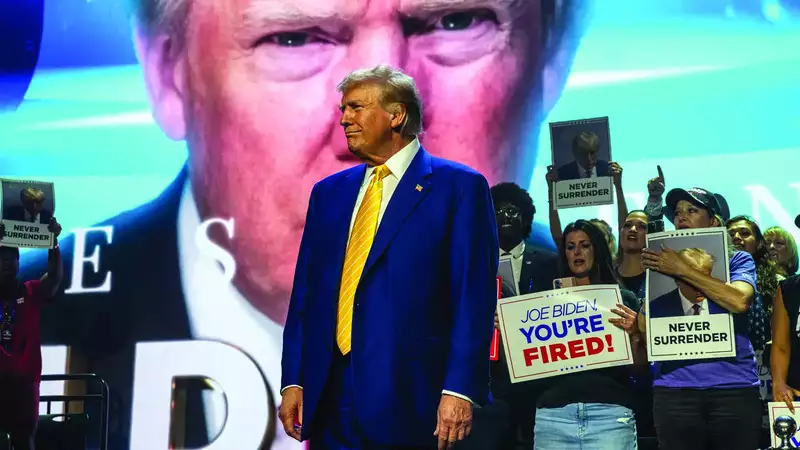What will a second Trump term mean for India? The man is so impulsive and unpredictable that nobody can be certain what he will do. But he has spoken of radical changes that would impact not just the US but the whole world.
What will a second Trump term mean for India? The man is so impulsive and unpredictable that nobody can be certain what he will do. But he has spoken of radical changes that would impact not just the US but the whole world.
First, he will immediately withdraw from the Paris Agreement on climate change and encourage oil drilling everywhere. This will kill chances of checking climate change, affecting everybody. Global finance for green projects in developing countries could shrink. Second, Trump is reluctant to get involved in wars anywhere. He may withdraw from or stop supporting the North Atlantic Treaty Organisation (NATO), the lynchpin of global security since World War II. This will have consequences for Ukraine, which may cave in to Russia. It will encourage military adventures by stronger countries against weaker ones everywhere. China could get more aggressive on the Himalayan border with India. ShowQuotesWe have already seen that a tiny group like the Houthis can stop all Red Sea traffic despite efforts of the mightiest navies. Such groups and the damage they do could multiply if the great powers wash their hands of conflicts in distant lands. This will not be conducive to global trade and investment, hitting all economies including India.
Trump’s attitude may induce China to believe this is the best window of time in which to attack and take over Taiwan. Whatever the outcome, that will be a disaster for Asia and India. Japan and Korea may react by quickly making nuclear arms, since they can no longer trust a US defence umbrella. Saudi Arabia and Iran may go nuclear too. Many more fingers will now be on nuclear triggers.Trump looks certain to impose a 10% tariff on all imports and a 60% tariff on imports from China. He also favours tax cuts and subsidies for key industries. This would, inevitably, attract retaliation from others. After which, Trump will threaten even higher US tariffs. A global trade war looms.
The existing trade structure of the world, built assiduously since World War II through GATT and the World Trade Organisation (WTO), may be ruined. Many countries flout this or that rule of WTO, but it still offers an orderly global structure. Alas, a Trumpian destruction is on the cards.
Analysts fear a return to the Great Depression of 1930s. Then, everybody resorted to protectionism. Starting with the US, every country imposed high tariffs or devalued its currency to reduce imports and expand exports. They failed to realise that imports of one country are the exports of others, and if all reduce imports, they will necessarily reduce exports too. Trade spiralled down every year and exacerbated the Depression. Competitive protectionism turned out to be a game in which everybody lost. ShowQuotesTo avoid such disasters, the US after World War II helped create international institutions like the World Bank, International Monetary Fund, and what ultimately became the WTO. The new regime was stunningly successful, and the world enjoyed the fastest growth in history.
But memories of the Great Depression have faded. Demand for protectionism is rising everywhere. Trump who, in his first term sidestepped the WTO because its rules constrain the US, could deal it a fresh blow. Like US politicians in the 1930s, he thinks he can make America great again by raising tariffs and subsidising US companies. He ignores the impact of retaliation by others.
Under WTO rules, tariffs applying to one country applied to all. In the new Trumpian world, we may have different tariffs and trade rules for every country or regional bloc, depending on negotiations. India might have to negotiate rules on trade and investment with every different trading partner or bloc.
This could also mean dozens of different Indian tariff rates for the same product, depending on the exporter. This would create immense scope for mis-invoicing, corruption, and unending legal disputes. Such a fragmented world would imply huge uncertainties that hit global investment, trade and economic growth.I have painted a worst-case scenario. The actual outcome could be better. But understanding how bad it can get will inform our own contingency planning in a new world. As the old saying goes, hope for the best but prepare for the worst.


